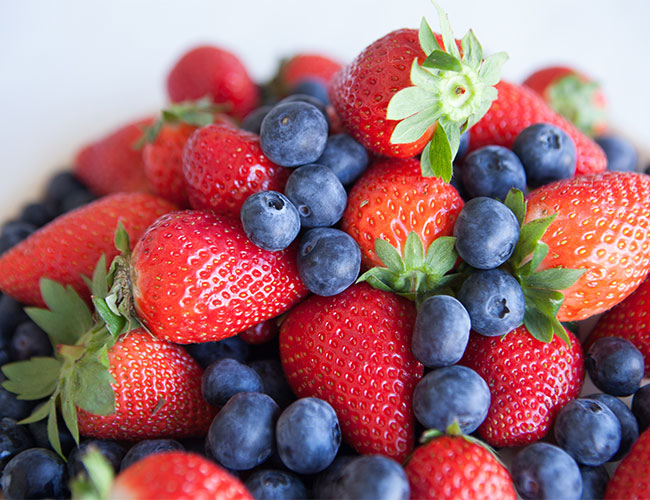
Berries
Strawberries, blueberries, raspberries–you name it. If you're looking for a waist-friendly snack, Dr. Lee suggests that a handful of berries is a good option. "[They're] packed with phytonutrients, vitamins, and fiber compared to other fruits," she says.
The best part? You can also use berries to whip up a healthy drink. Dr. Lee's favorite smoothie recipe is something you might even want to try yourself. It has plenty of pure proteins and fiber to keep you full throughout the day. She adds, "[And] because it is packed with nutrients and low in calories, it doesn't get stored into fat." Amazing!
Cruciferous Vegetables
Broccoli, cabbage, cauliflower, and bok choy are just some examples that belong to this family of vegetables. Although some do have a bitter taste, these high-fiber cruciferous vegetables are actually "packed with phytochemicals with anti-cancer benefits," Dr. Lee explains. They're also a good source of nutrients like vitamin A, C, and K.
Popcorn
Who would have thought that your go-to movie snack could be so rich in fiber? As long as you eat it in moderation, popcorn can actually be good for you. It has antioxidants like polyphenols which help with digestion and blood circulation. Dr. Lee shares, "Instead of drenching it with sugar or butter, people have learned other ways of adding spices to it (ex. Indian garam masala) to create a savory snack without the added calories."
Nuts
Unsweetened nuts like almonds and pecans are also good to consider when planning your diet. They are "packed with fiber, vitamins, minerals, and are great snack alternatives to keep one satiated without all the added calories," Dr. Lee concludes. Eating nuts also improves brain development, lowers your cholesterol, and reduces your risk of getting heart disease.
Sounds good. We'll definitely be stocking up on these items more!


